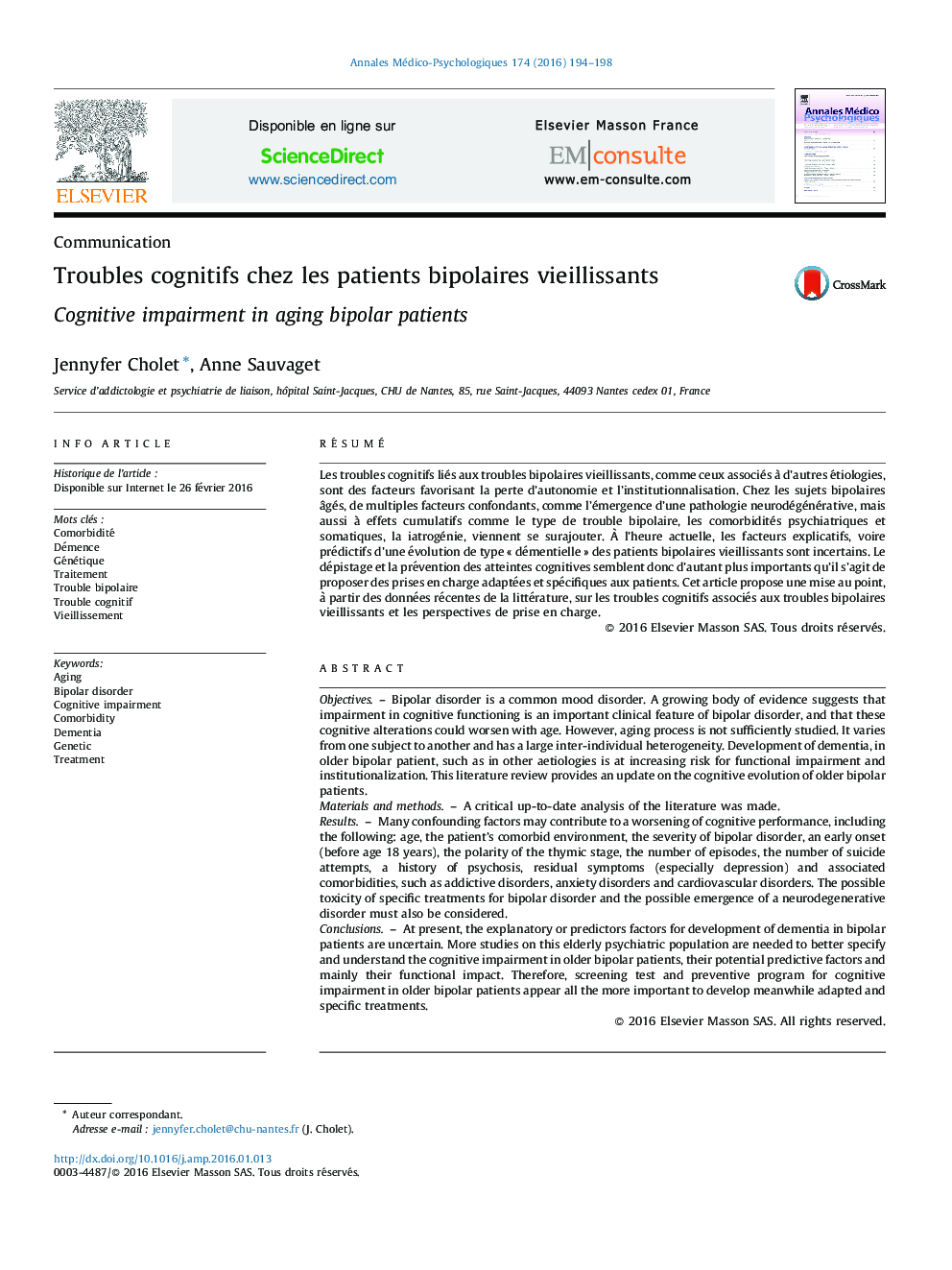| کد مقاله | کد نشریه | سال انتشار | مقاله انگلیسی | نسخه تمام متن |
|---|---|---|---|---|
| 313613 | 534517 | 2016 | 5 صفحه PDF | دانلود رایگان |
RésuméLes troubles cognitifs liés aux troubles bipolaires vieillissants, comme ceux associés à d’autres étiologies, sont des facteurs favorisant la perte d’autonomie et l’institutionnalisation. Chez les sujets bipolaires âgés, de multiples facteurs confondants, comme l’émergence d’une pathologie neurodégénérative, mais aussi à effets cumulatifs comme le type de trouble bipolaire, les comorbidités psychiatriques et somatiques, la iatrogénie, viennent se surajouter. À l’heure actuelle, les facteurs explicatifs, voire prédictifs d’une évolution de type « démentielle » des patients bipolaires vieillissants sont incertains. Le dépistage et la prévention des atteintes cognitives semblent donc d’autant plus importants qu’il s’agit de proposer des prises en charge adaptées et spécifiques aux patients. Cet article propose une mise au point, à partir des données récentes de la littérature, sur les troubles cognitifs associés aux troubles bipolaires vieillissants et les perspectives de prise en charge.
ObjectivesBipolar disorder is a common mood disorder. A growing body of evidence suggests that impairment in cognitive functioning is an important clinical feature of bipolar disorder, and that these cognitive alterations could worsen with age. However, aging process is not sufficiently studied. It varies from one subject to another and has a large inter-individual heterogeneity. Development of dementia, in older bipolar patient, such as in other aetiologies is at increasing risk for functional impairment and institutionalization. This literature review provides an update on the cognitive evolution of older bipolar patients.Materials and methodsA critical up-to-date analysis of the literature was made.ResultsMany confounding factors may contribute to a worsening of cognitive performance, including the following: age, the patient's comorbid environment, the severity of bipolar disorder, an early onset (before age 18 years), the polarity of the thymic stage, the number of episodes, the number of suicide attempts, a history of psychosis, residual symptoms (especially depression) and associated comorbidities, such as addictive disorders, anxiety disorders and cardiovascular disorders. The possible toxicity of specific treatments for bipolar disorder and the possible emergence of a neurodegenerative disorder must also be considered.ConclusionsAt present, the explanatory or predictors factors for development of dementia in bipolar patients are uncertain. More studies on this elderly psychiatric population are needed to better specify and understand the cognitive impairment in older bipolar patients, their potential predictive factors and mainly their functional impact. Therefore, screening test and preventive program for cognitive impairment in older bipolar patients appear all the more important to develop meanwhile adapted and specific treatments.
Journal: Annales Médico-psychologiques, revue psychiatrique - Volume 174, Issue 3, April 2016, Pages 194–198
